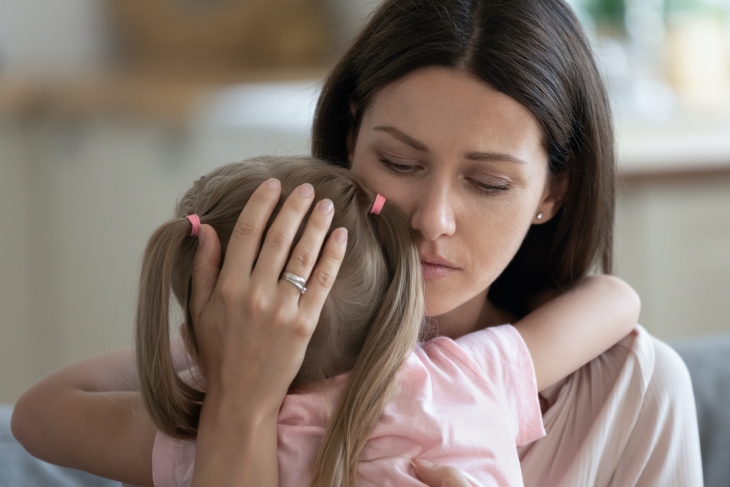Around six months ago, stay-at-home orders and school closures upended normal life for children of all ages across the United States. The loss of academic learning has been a huge concern, but we’re not talking enough about the implications of long-term “social distancing” for babies, toddlers, and preschoolers.
As a parent who has been trying to work from home while caring for two little ones around the clock, I was initially more worried about my husband’s and my mental health. Our three-year-old son and one-year-old daughter have never been healthier—not mixing with other kids has some advantages—and both are relishing the extra time with mom and dad. Our son even recently declared that he never wants to return to daycare, which I’m sure will come back to bite us down the line.
But I know that even in our very fortunate situation, where we’ve had the flexibility to work from home, our small children are still missing out on important opportunities to grow and learn because they can’t leave the family cocoon. Given the brain’s incredible development during the first few years, isolating small children for an extended period of time surely isn’t a good thing. Many young children have been away from peers, caregivers, extended family members, and other adults, as well as all manner of stimulating activities outside the home, from playgrounds to grocery stores to story time at the library, for nearly half a year now. As states continue to roll back social distancing measures, and as families begin to leave the confines of their homes, will we be able to make up for what’s been lost?
We just don’t know yet. But parents, educators and experts would be wise to consider the impact of the current crisis on America’s youngest citizens, and how best to mitigate it.
It’s well known that young children learn and develop social skills through playing and interacting with others. An expert I consulted on this topic, Kate Zinsser, associate professor of psychology at the University of Illinois at Chicago, explained: “Learning, especially for very young children, cannot happen in a vacuum and is grounded in social interactions. Right now, children simply do not have as many opportunities to practice interacting with and learning from a variety of people across a variety of contexts. Loss of interactions with caregivers and opportunities to practice social skills with same-aged peers will eventually take its toll.”
Children also thrive on routines, which can help them learn to anticipate and regulate their emotions and meet social expectations. My son’s daycare class followed the same general schedule every day, which helped kids know what to expect and how to transition between activities: After naptime, we have our snack and then get to play outside. But during the current crisis, even the best-planned, color-coded, Pinterest-inspired family schedules often fall victim to the daily chaos of simultaneously trying to keep up with child care, meal prep, and housekeeping while coping with time-sensitive work demands.
The current crisis has likely had an especially harmful effect on disadvantaged children, who often have less access to space to play inside and exercise outdoors, and who will be disproportionately affected by parents’ diminished income, which may bring losses of safe housing and healthy food.
“Many in the field are considering the events of this pandemic to be a pervasive collective trauma for young children, but some children will be more negatively affected than others,” Zinsser said. “When coupled with the loss of access to supportive high-quality learning environments, this adversity will undoubtedly widen the already existing gaps in school readiness and well-being.”
As a new school year gets underway, parents now face the excruciating decision of whether and when to return their young children to preschools, play groups, and childcare centers. Parents, caregivers and educators will also need to consider how to adjust care in light of the social and emotional damage and potential trauma that children and families have experienced in recent months. Erratic and challenging behavior will be normal, Zinsser said, and “drop-offs will be hard at first.”
But, she added, “with love, support, and sensitive care, children are incredibly resilient.”
For toddlers, reading stories aloud and discussing characters’ feelings and actions may be helpful now, as always. And all who can should continue to strategize about ways to help particularly vulnerable children, such as those living in poverty, those exposed to domestic violence or those with substance-addicted caregivers.
While 2020 has pushed many of us to our limits, we parents should not abandon hope. However challenging the past six months have been, social distancing has also served as a poignant reminder of how important our community networks and supports are to our daily lives and happiness. That lesson is worth noting and appreciating, even as we collectively struggle with the ongoing crisis.
Editor’s note: This story was produced by The Hechinger Report, a nonprofit, independent news organization focused on inequality and innovation in education.


